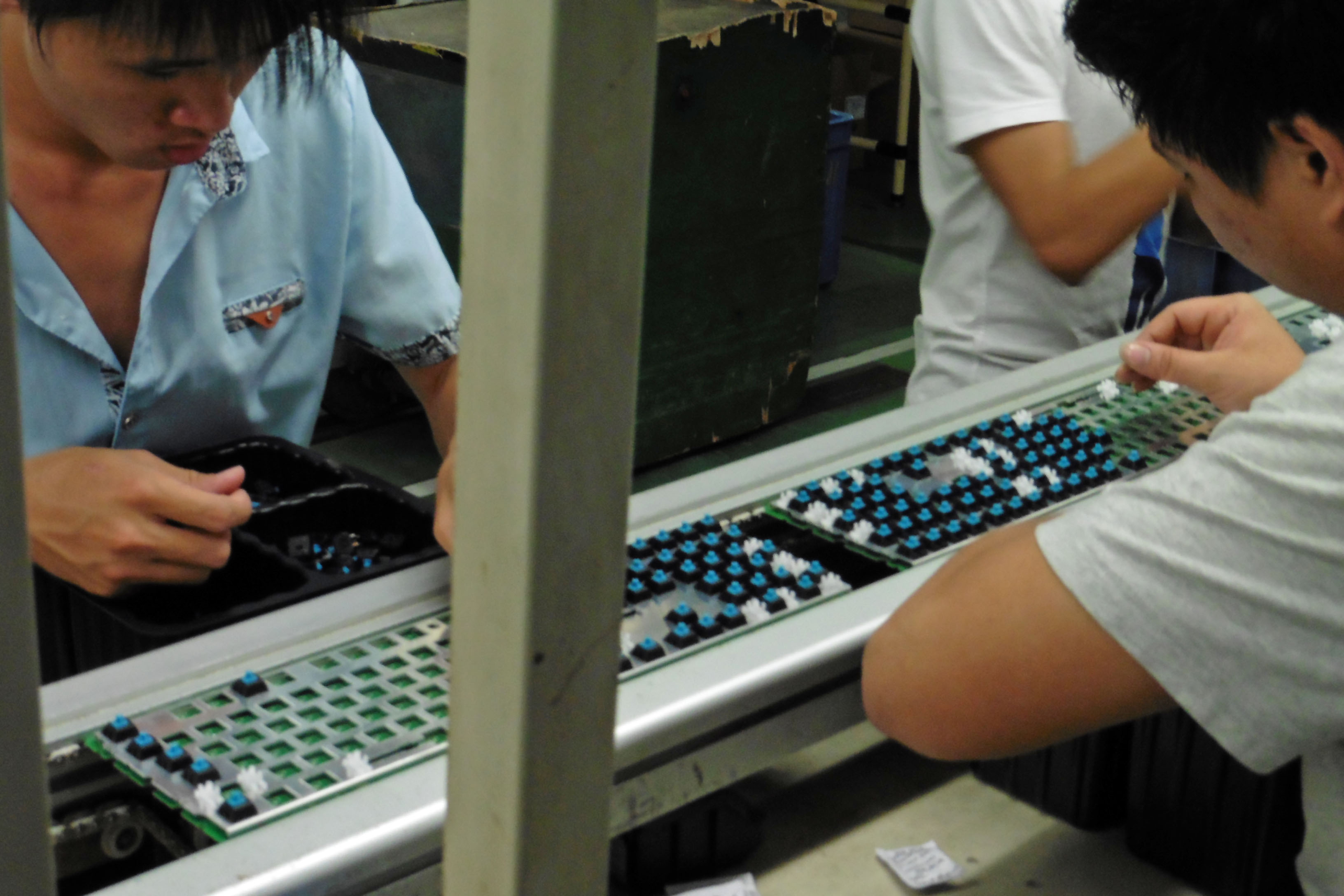The first Chinese company that last year received a record estimate was Alibaba Ant Financial, whose capitalization exceeded 1 trillion yuan ($ 148 billion). It is followed by the personalized news aggregator Toutiao by ByteDance company ($ 75 billion) and DiDi Chuxing transport service ($ 56 billion). At the same time, 97 new unicorns appeared on the Chinese market for the entire 2018 (for comparison, only 54 billion startups appeared in the US in the same year); 24 companies finished their IPOs and dropped out of the list of unicorns; three more companies merged with others, and four companies failed.
Crunchbase reports that in the second quarter of 2018, Chinese startups overtook American in terms of the volume of attracted investments for the first time in history. In the first two quarters, Chinese startups received 47% of the total global volume of venture capital investments, while young companies in the United States and Canada combined received 35%. According to the results of the 4th quarter of 2018, the venture capital market in China sank a little, the Venture Winter came, and the market slipped to 2015 figures. In the 3rd quarter of 2018, the Chinese economy grew by only 6.5%, demonstrating the slowest growth since 2009 due to the consequences of the trade war with the United States and a number of other factors. Nevertheless, the Chinese venture capital market is still incredibly huge. Today, this growth leads to explosive changes not only in China, but throughout the world.
In a report at the National People's Congress (NPC) in 2016, State Council Premier Li Keqiang uttered the word “innovation” 59 times and the word “entrepreneurship” - 22 times. This very precisely characterizes the Chinese economy: Li Keqiang's call for “mass entrepreneurship and innovation” was heard and became the national economic strategy of the PRC.
In 2000, total revenues generated by Chinese state-owned enterprises and private enterprises were about the same and amounted to about 4 trillion yuan ($ 600 billion each). By 2013, total revenues of state-owned companies grew more than six times. Meanwhile, non-state sector revenues grew by more than 18 times. The entrepreneurial spirit of China is more than just a business: it actually became close to each of the 1.3 billion people in the PRC. Adventurism is inherent in the Chinese: they are curious about new products and are beginning to use them en masse and much faster than Europeans and Americans. Moreover, they are set to fast commercialization: for Chinese founders, startups are not a fun and not a way to change the world, but a purely pragmatic business, the purpose of which is to get money.
Mass entrepreneurship creates incredibly high competition, and this, in turn, creates new business models that combine various spheres of life and technology. The state strategy of the PRC and national character traits led to the fact that in 2018 China has registered more than 21 million legal entities, including 6 million companies.
The attitude of the Chinese to robotization, autonomous machines and changes in the human genome is different from the western one. The Western world believes that these areas cause too many ethical and philosophical discussions. Meanwhile, China is boldly investing in modernization of production, robotics, IIoT (industrial internet of things), etc., while labor protection is only discussed on the sidelines without excessive pathos. Recall that and the speed of decision making is crucial to evolution.
In 2017, the volume of the industrial Internet of things market in China amounted to $ 85.5 billion. Its volume is projected to reach $ 160 billion by 2020 while maintaining the average growth (CAGR) of 18%. At the same time, the market volume of smart manufacturing in China in 2018 was $ 250,5 billion, and by 2023, it is forecasted above $ 420 billion. As a result, by the end of 2017, China surpassed the US in the number of unicorns: 34 vs. 32. Not everyone noticed this event, since China is not always well monitored by Western organizations: for example, CB Insight noticed only 17 unicorns in China in the indicated year.
Artificial Intelligence (AI), big data, robotics and education will soon remain the priority and strategic industries for the country. According to Chinese Science and Technology Minister Wang Zhigang, these areas will receive the most funding to catch up with the United States. It should be borne in mind that new and potentially successful companies will also appear in areas requiring research in the basic sciences, for example, quantum technology, biotechnology and genetic engineering, as well as private space programs.
At the same time, industries where the state currently dominates, such as telecommunications, finance and medicine, remain ineffective so far. Such conditions allow active newcomers to occupy their niches in the business through active introduction of new technologies and business models. For example, methods of work in medicine have long outlived themselves. Long lines at public hospitals have become the norm, and access to medicines is complicated due to an opaque distribution system. Thanks to this, Alihealth (a subsidiary of Alibaba) has become a leader in the field of online medicine trade, and capitalization of WeDoctor (called Amazon in healthcare) has already exceeded $ 6 billion.
Back in 2014, it was possible to assume that China would become a serious player in the high-tech market. Now it’s obvious: over the past two years, China has created a herd of high-tech unicorns. The following examples of companies and industries are just the tip of the iceberg, because new niches for technology companies are constantly emerging in the country.
source: forbes.com
Crunchbase reports that in the second quarter of 2018, Chinese startups overtook American in terms of the volume of attracted investments for the first time in history. In the first two quarters, Chinese startups received 47% of the total global volume of venture capital investments, while young companies in the United States and Canada combined received 35%. According to the results of the 4th quarter of 2018, the venture capital market in China sank a little, the Venture Winter came, and the market slipped to 2015 figures. In the 3rd quarter of 2018, the Chinese economy grew by only 6.5%, demonstrating the slowest growth since 2009 due to the consequences of the trade war with the United States and a number of other factors. Nevertheless, the Chinese venture capital market is still incredibly huge. Today, this growth leads to explosive changes not only in China, but throughout the world.
In a report at the National People's Congress (NPC) in 2016, State Council Premier Li Keqiang uttered the word “innovation” 59 times and the word “entrepreneurship” - 22 times. This very precisely characterizes the Chinese economy: Li Keqiang's call for “mass entrepreneurship and innovation” was heard and became the national economic strategy of the PRC.
In 2000, total revenues generated by Chinese state-owned enterprises and private enterprises were about the same and amounted to about 4 trillion yuan ($ 600 billion each). By 2013, total revenues of state-owned companies grew more than six times. Meanwhile, non-state sector revenues grew by more than 18 times. The entrepreneurial spirit of China is more than just a business: it actually became close to each of the 1.3 billion people in the PRC. Adventurism is inherent in the Chinese: they are curious about new products and are beginning to use them en masse and much faster than Europeans and Americans. Moreover, they are set to fast commercialization: for Chinese founders, startups are not a fun and not a way to change the world, but a purely pragmatic business, the purpose of which is to get money.
Mass entrepreneurship creates incredibly high competition, and this, in turn, creates new business models that combine various spheres of life and technology. The state strategy of the PRC and national character traits led to the fact that in 2018 China has registered more than 21 million legal entities, including 6 million companies.
The attitude of the Chinese to robotization, autonomous machines and changes in the human genome is different from the western one. The Western world believes that these areas cause too many ethical and philosophical discussions. Meanwhile, China is boldly investing in modernization of production, robotics, IIoT (industrial internet of things), etc., while labor protection is only discussed on the sidelines without excessive pathos. Recall that and the speed of decision making is crucial to evolution.
In 2017, the volume of the industrial Internet of things market in China amounted to $ 85.5 billion. Its volume is projected to reach $ 160 billion by 2020 while maintaining the average growth (CAGR) of 18%. At the same time, the market volume of smart manufacturing in China in 2018 was $ 250,5 billion, and by 2023, it is forecasted above $ 420 billion. As a result, by the end of 2017, China surpassed the US in the number of unicorns: 34 vs. 32. Not everyone noticed this event, since China is not always well monitored by Western organizations: for example, CB Insight noticed only 17 unicorns in China in the indicated year.
Artificial Intelligence (AI), big data, robotics and education will soon remain the priority and strategic industries for the country. According to Chinese Science and Technology Minister Wang Zhigang, these areas will receive the most funding to catch up with the United States. It should be borne in mind that new and potentially successful companies will also appear in areas requiring research in the basic sciences, for example, quantum technology, biotechnology and genetic engineering, as well as private space programs.
At the same time, industries where the state currently dominates, such as telecommunications, finance and medicine, remain ineffective so far. Such conditions allow active newcomers to occupy their niches in the business through active introduction of new technologies and business models. For example, methods of work in medicine have long outlived themselves. Long lines at public hospitals have become the norm, and access to medicines is complicated due to an opaque distribution system. Thanks to this, Alihealth (a subsidiary of Alibaba) has become a leader in the field of online medicine trade, and capitalization of WeDoctor (called Amazon in healthcare) has already exceeded $ 6 billion.
Back in 2014, it was possible to assume that China would become a serious player in the high-tech market. Now it’s obvious: over the past two years, China has created a herd of high-tech unicorns. The following examples of companies and industries are just the tip of the iceberg, because new niches for technology companies are constantly emerging in the country.
source: forbes.com



















